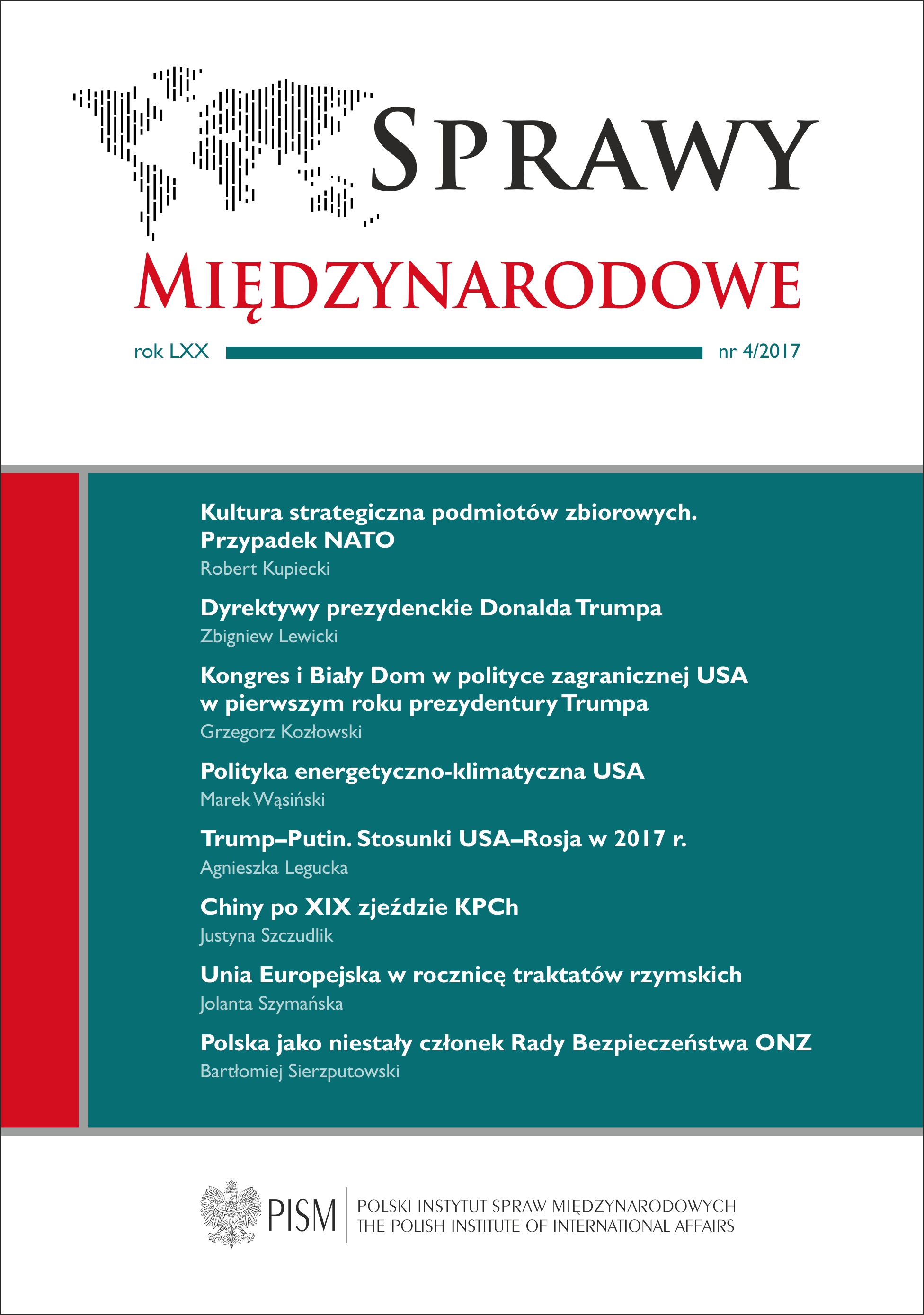Uwarunkowania wewnętrzne polityki energetyczno-klimatycznej Stanów Zjednoczonych i jej implikacje dla partnerów zagranicznych
Domestic Factors Shaping U.S. Energy and Climate Policy: Implications for International Partners
Author(s): Marek Jan WasińskiSubject(s): Energy and Environmental Studies, Public Administration, Public Law, Economic policy, Environmental and Energy policy
Published by: PISM Polski Instytut Spraw Międzynarodowych
Summary/Abstract: In the past decades, the United States twice undermined the global climate negotiations by declining to ratify or planning to withdraw from ratified agreements. The U.S. position is rooted in the domestic energy and climate policy, including the competences of the authorities at the federal, state and local levels, as well as at business dynamics. For the international community this means that it cannot rely solely on negotiations with the U.S. administration without broad support of the states if it wishes to avoid encountering major obstacles and loss of credibility. Consequently, a broader engagement of states in developing U.S. climate policy is suggested in a bottom-up process in line with the Paris Agreement.
Journal: Sprawy Międzynarodowe
- Issue Year: 2017
- Issue No: 4
- Page Range: 65-75
- Page Count: 11
- Language: Polish

